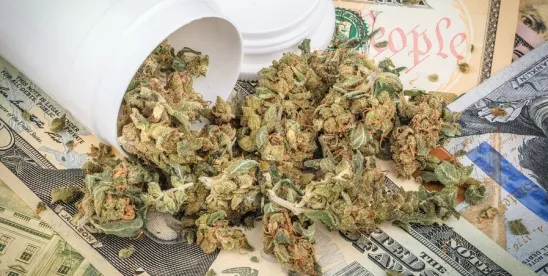A few months back, I posted some thoughts about recent efforts to legalize medical and recreational marijuana, with an emphasis on the potential issues such laws would have on manufacturers – particularly manufacturers in a space requiring a heightened concern for employee safety. See “Legal Pot = Manufacturing Storm Clouds” (May 29, 2019). To my surprise, I started fielding related questions as soon as I published the blog.
So here is the question: What do you do when an employee has a prescription to use medical marijuana under your state’s law and arrives to work reeking of marijuana? Suppose the employee is employed in a job where a mistake could be dangerous to him or herself, or to the public at large. (Think airline pilot, health care professional, high steel construction worker, or a laborer in a large equipment manufacturing facility.)
If we assume the employee’s medical condition would be covered under the Americans with Disabilities Act or a comparable state law, the employee’s employer may be required to accommodate that person’s off-duty use of marijuana. See Wild v. Carriage Funeral Holdings, Inc. and Noffsinger v. SS Niantic Operating Co., 2018 WL 4224075 (D. CT 2018). But what if the person’s medical condition required him or her to use marijuana during a break? Or what happens if the prescription says simply, “as needed?”
Generally speaking, an unsubstantiated fear that “something bad” may happen does not justify refusing to accommodate the individual. So an employer’s concern or belief that the employee really does not “need” to use marijuana during break times or that she or he is “under the influence at work” may not be sufficient absence proof of intoxication.
Arguably, the above court decisions would permit an employer to discipline an employee for using marijuana at work or being under the influence of marijuana while at work. The challenge of course is proving it. I am told that like a fine cigar, the aroma of marijuana can linger on a person’s clothing long after use. I also understand from my review of the literature that there has yet to be developed a reliable test for determining whether someone is under the influence (unlike alcohol, where reliable field sobriety and blood tests are highly accurate).
I admit I have no perfect answers.
This remains one area where society has outpaced both the law and the science. Until we can agree on where we draw the line between public safety and individual liberty, I think these issues will continue to confound HR and legal professionals.


 />i
/>i
